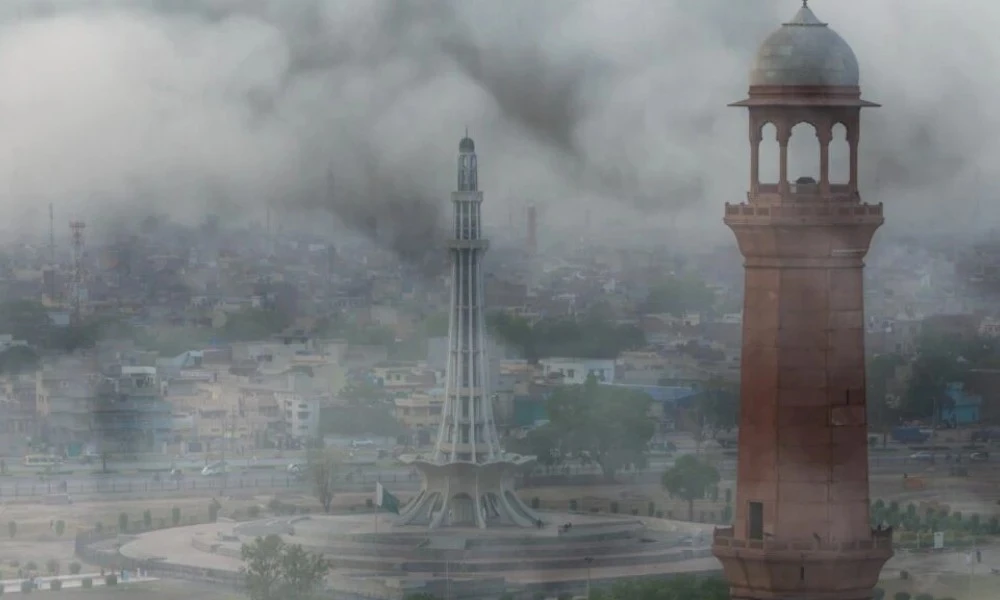In response to escalating air pollution levels, the Environmental Protection Agency (EPA) of Punjab has issued a significant directive ordering the closure of all educational institutions, including private tuition centers, up to the higher secondary level (Grade 12/A-level) in several districts across Punjab from November 7 to 17. The EPA’s decision, outlined in an official notification dated November 6, 2024, aims to mitigate the harmful effects of severe air pollution currently afflicting the region.
Schools Shift to Online Mode Due to Critical Air Quality
The official order, signed by Dr. Imran Hamid Sheikh, the Director General of the EPA, mandates that schools will remain closed from November 7 to November 17, 2024, shifting to online instruction during this period. This decision affects institutions in major cities and districts, including Lahore, Gujranwala, Faisalabad, Multan, and several others that have experienced a significant rise in air quality index (AQI) levels.
The notification references Section 6(1)(i) of the Punjab Environmental Protection Act, 1997, which empowers the EPA to take necessary actions to protect the environment and public health. This directive is intended as a preemptive measure to prevent further deterioration of air quality and to safeguard students and educational staff from the adverse effects of air pollution.
Why Was This Measure Taken?
The Health Advisory System for Critical Air Pollution Events (HAS-CAPEs) was initially introduced to monitor pollution levels and take timely actions. A recent Provincial CAPEs Committee (PCC) meeting on October 21, 2024, declared Lahore and surrounding areas to be experiencing a "Critical Air Pollution Event" based on soaring AQI readings.
Air pollution in Punjab, particularly in Lahore, has worsened significantly over the years, primarily due to vehicular emissions, industrial activities, and seasonal crop burning in nearby rural areas. According to the EPA, pollution levels have reached alarming thresholds, making the air quality hazardous for residents. AQI readings have frequently crossed into dangerous levels, with harmful particles, known as PM2.5, posing a high risk to respiratory health.
Impact on Students and Schools
This order affects students, parents, and teachers across Punjab, requiring them to switch to online classes for a temporary period. While this transition may pose challenges for institutions not yet fully equipped for remote learning, it is viewed as essential to protect children from the health risks associated with prolonged exposure to toxic air.
Parents and guardians are advised to ensure their children remain indoors as much as possible during this period to avoid inhaling harmful pollutants. The EPA's notification also emphasizes that actions are being taken not only to safeguard public health but also to promote sustainable environmental practices.
List of Affected Districts
The following districts will observe school closures from November 7 to November 17, 2024:
- Lahore
- Sheikhupura
- Kasur
- Nankana Sahib
- Gujranwala
- Gujrat
- Hafizabad
- Mandi Bahauddin
- Sialkot
- Narowal
- Faisalabad
- Chiniot
- Jhang
- Toba Tek Singh
- Multan
- Lodhran
- Vehari
- Khanewal
The Punjab Government, along with the EPA, has been striving to implement measures aimed at controlling various sources of pollution. The government has intensified efforts to monitor industrial emissions, regulate waste burning, and curb vehicular pollution to improve air quality. However, these initiatives have faced significant challenges, including lack of compliance, enforcement difficulties, and the widespread nature of pollution sources.
Government’s Future Plans
The EPA and the Punjab Government are considering a range of strategies to address the persistent smog issue, including stricter industrial regulations, improved waste management systems, and the promotion of cleaner energy sources. Awareness campaigns aimed at educating the public on the health effects of pollution and encouraging responsible behavior, such as reducing the use of private vehicles, are also planned.
With air pollution levels hitting critical thresholds in Punjab, the temporary closure of schools up to the higher secondary level reflects a necessary and proactive approach by the EPA. While this decision disrupts academic routines, the health and safety of students remain the top priority. The shift to online education, though challenging, allows for continuity in learning while protecting young lives from the health hazards posed by severe air pollution.
The EPA’s order underscores the urgent need for both short-term and long-term solutions to combat air pollution. As authorities and citizens alike grapple with the immediate challenges, a collective effort is essential to ensure a sustainable and healthier environment for future generations.




.webp)
.webp)
.webp)
.webp)
.webp)



